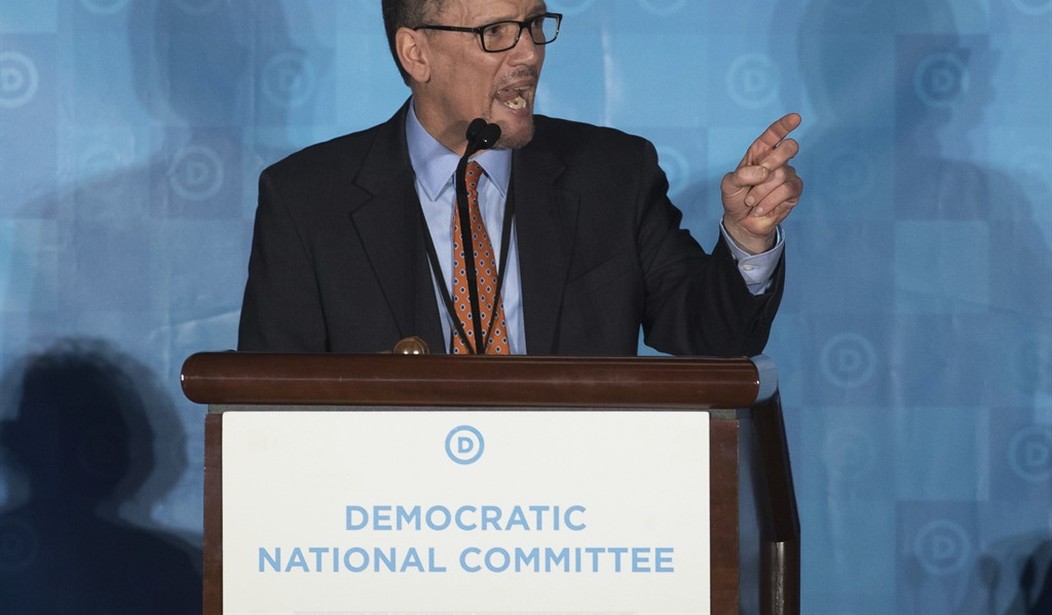Need we explain “diversity” in this instance? The Boston Globe filled in the blanks pretty well a few days ago as the DNC debates whether to demote Iowa and New Hampshire in presidential primaries. Activists within the Democratic Party certainly aren’t worried about ideological diversity, needless to say:
Many Democrats, including some who ran for president in 2020, say Iowa and New Hampshire shouldn’t hold the nation’s first nominating contests because their majority-white populations don’t reflect the Democratic electorate. Those debates are taking place behind the scenes at the Democratic National Committee, as party leaders including former Senate majority leader Harry Reid of Nevada and Representative Jim Clyburn of South Carolina both say states like theirs should appear sooner on the primary calendar, and Nevada state lawmakers have filed a bill to move to the front of the line.
“We definitely see a need for more diversity in states that are scheduled at the beginning of the election, to properly reflect the racial and ethnic diversity of our country, but also [because] it impacts the issues that are being discussed,” said Yadira Sanchez, co-executive director of the advocacy group Poder Latinx. “Our diversity demands that we see ourselves reflected in the primary process — and not at the end, when decisions have already been made.”
Let’s just pause for a moment and reflect on the call for greater diversity from “Poder Latinx.” The term Latinx is itself so fringy that one has to wonder why anyone would bother reading their press releases, let alone take political advice from the group. The Los Angeles Times noted the results of a Pew poll on the term last August, which three-quarters of the demo it supposedly identifies has never even heard of it:
The term “Latinx” has been embraced by 3% of Latinos in the United States, according to the first major poll on the topic by the nonpartisan Pew Research Center, which closely tracks “Hispanic/Latino” demographic and social trends. The study, released Tuesday, also found that roughly three out of four Latinos in the U.S. hadn’t even heard of the term.
The Pew findings suggest that Latinx has a significant way to go before it enters fully generalized usage in the United States, despite its enthusiastic embrace at colleges and universities, in liberal corporate discourse, some news media outlets, Hollywood and among recent presidential primary candidates such as Elizabeth Warren and Julián Castro.
Among those who had heard of Latinx, 33% said it should be used to describe the Hispanic or Latino population, while 65% said it should not be used. Researchers also found that people in the United States still prefer to self-identify as “Hispanic” (61%) followed by “Latino” (29%) or their country of origin.
If Democrats want to appeal more to Hispanic voters, perhaps they should start by distancing themselves from a label that almost all of them reject. They’re pandering to intersectionalist voters that they already all but own in the first place.
Anyway, back to diversity in all of its glorious forms. One can object to the elevation of Iowa and New Hampshire on a number of grounds, but many of those objections would also apply to the states vying to replace them on the primary calendar. The best argument for moving them to later in the process is population size; both are small states that end up exerting influence exceeding the Electoral College importance. However, Nevada has fewer people than Iowa, and South Carolina only barely qualifies for the upper half of US states by population (23rd).
Why not choose California and Texas instead? They have the two largest populations, and a lot more “diversity” than Nevada — not just in terms of ethnicity, but in terms of urban vs rural voters, ideology, commerce, and so on. Or pair up Florida and Pennsylvania instead (#3 and #5, respectively), two battleground states with real import in Electoral College considerations, both of which also have a great deal more “diversity” in broader terms than just ethnicity.
Bill Shaheen, a DNC member and the husband of Sen. Jeanne Shaheen of New Hampshire, says the small population serves a purpose at the top of the primary chain:
Shaheen dismissed the argument that New Hampshire’s demographics should disqualify it, arguing it is a good early testing ground for candidates of any background because it’s small and comparatively inexpensive, allowing even little-known contenders to prove themselves.
“We create a level playing field. It doesn’t matter what the color of your skin is. We judge people by the content of their character,” Shaheen said.
Those are fighting words in the Era of Woke. Activists like “Poder Latinx” argue that the color of skin is a higher priority than character, and even that the former is determinative of the latter. It’s amazing that the Democratic Party is essentially returning to that argument sixty years after getting pushed away from it by the civil-rights movement, but here we are. If the DNC jettisons Iowa and New Hampshire from the top spots of their primary on this reason, we will see that ugly circle complete itself.








Join the conversation as a VIP Member